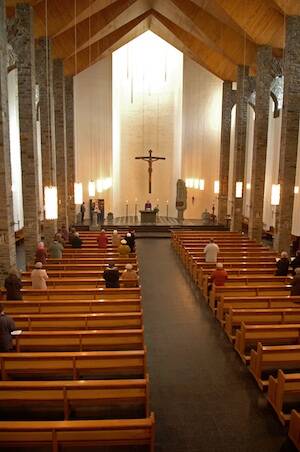Forty-four percent of Americans have “a great deal” or “quite a lot” of confidence in “the church or organized religion” today, just below the low points Gallup has found in recent years—45 percent in 2002 and 46 percent in 2007. This follows a long-term decline in confidence in religion since the 1970s. In 1973, “the church or organized religion” was the most highly rated institution in Gallup’s measure of confidence in institutions and it continued to rank first in most years through 1985, outranking the military and the U.S. Supreme Court. That began to change in the mid- to late 1980s as confidence in organized religion first fell below 60 percent. The rate returned to 60 percent in 2001, only to be rocked the following year by charges of child molestation and coverup in the Catholic Church. The same poll found Americans’ confidence in public schools, banks and television news at all-time lows. Currently 56 percent of Protestants express a great deal or quite a lot of confidence in church/organized religion, compared with 46 percent of Catholics.
Lost Confidence
Show Comments (
)
Comments are automatically closed two weeks after an article's initial publication. See our comments policy for more.
The latest from america
A Reflection for Tuesday of the Eighteenth Week in Ordinary Time, by Molly Cahill
As emergency workers searched for survivors and tried to recuperate the bodies of the dead, Pope Leo XIV offered his prayers for people impacted by the latest shipwreck of a migrant boat off the coast of Yemen.
The Archdiocese of Miami celebrated the first Mass for detainees at “Alligator Alcatraz,” the Trump administration’s controversial immigrant detention center in the Florida Everglades.
Eight decades after the end of World War II, Father George Zabelka exists as a symbol of conscience, one who can communicate the message of Gospel nonviolence.








